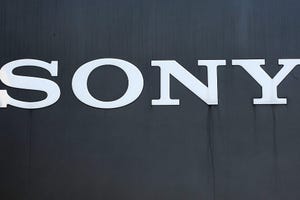FDA Warning Letter Opens Magnetic Molecular Energizer Case
March 5, 2014
|
The Magnetic Molecular Energizer (Courtesy Advanced Magnetic Research Institute International) |
FDA "finally got around to" issuing a Warning Letter to the Advanced Magnetic Research Institute (AMRI), says Stephen Barrett, MD, in an article on Devicewatch.org. The company offers treatments using its "Magnetic Molecular Energizer" (MME) device at several locations around the country.
According to the Warning Letter, AMRI claims the device offers a therapeutic benefit for "a wide variety of ailments such as spinal cord injury, brain injury, stroke impairment, multiple sclerosis, muscular dystrophy, cerebral palsy, Parkinson's disease, Alzheimer's disease, congestive heart failure, and orthopedic conditions involving bone and joint repair."
Barrett says that the MME was invented by Dean R. Bonlie, DDS, of Calgary, Canada, and was patented in the United States in 2001.
An investigator from FDA's San Francisco office visited the company's Las Vegas, NV, headquarters facility in August and September, 2013, and found "objectionable conditions." The FDA inspector found three significant problems.
First, the Institutional Review Board (IRB) approval for the three studies the company still claims to be conducting had expired in 2008. The Warning Letter states, "Your failure to maintain IRB approval is a serious violation of your responsibilities as a sponsor and placed study subjects at increased risk of adverse health consequences."
Second, AMRI had failed to comply with FDA regulations that prohibit promotion of an investigational device until after FDA has approved the device for commercial distribution. The firm was also cited for "representation that an investigational device is safe or effective for the purposes for which it is being investigated" since FDA has not cleared or approved the device.
Find out more about the medical device industry--including its technology, supplier networks, and much more--at BIOMEDevice, March 26-27, 2014 in Boston. |
And third, there was a massive failure to maintain records and submit reports. This dearth of records included adverse event reports, records of the name and address of the IRB that reviewed the above-stated studies, and, according to the Warning Letter, "there were no records to indicate the extent to which the good manufacturing practice regulations in 21 CFR Part 820 were followed to manufacture the MME device..."
The Warning Letter says, "Records concerning many adverse device effects were not available for FDA inspection, nor were the unanticipated adverse device effects submitted to FDA as specified by this regulation." Those unreported adverse device effects include three deaths that may have been linked to MME exposure.
Barrett concludes, "As far as I can tell, Bonlie and AMRI have not demonstrated any serious interest in testing their claims. In March 2014, I searched the National Library of Medicine (PubMed) database and found no publications under Bonlie's name."
We can only say, "If it ducks like a quack..."
Stephen Levy is a contributor to Qmed and MPMN.
About the Author(s)
You May Also Like



